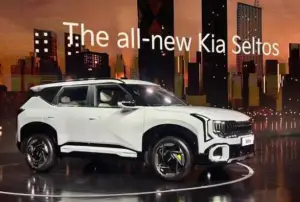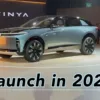Electric vehicles (EVs) are no longer a futuristic concept; they have become a mainstream reality, reshaping the global transportation landscape. From reducing greenhouse gas emissions to offering long-term cost savings, EVs are driving a sustainable revolution. This article explores how EVs are making a significant impact, the benefits they bring, and what the future holds for this rapidly growing industry.
The Rise of Electric Vehicles
The transition to electric vehicles has been accelerated by technological advancements, government incentives, and increasing consumer awareness. Over the past decade, the EV market has witnessed exponential growth, with global sales surpassing 10 million units annually. Major automakers like Tesla, Ford, General Motors, and Volkswagen have made significant investments in electric vehicle production, signaling a pivotal shift in the industry.
Benefits of Going Electric
- Environmental Sustainability EVs are a key solution to combating climate change. By eliminating tailpipe emissions, they significantly reduce air pollution. When paired with renewable energy sources, the carbon footprint of electric vehicles is drastically lower than that of traditional internal combustion engine (ICE) vehicles.
- Cost-Efficiency While the upfront cost of EVs may be higher, their long-term savings are undeniable. With lower fuel costs, minimal maintenance requirements, and government subsidies, EVs are becoming an economically viable option for many consumers.
- Technological Innovation Electric vehicles come equipped with cutting-edge technology, including advanced driver-assistance systems (ADAS), over-the-air updates, and enhanced connectivity features. These innovations not only improve safety but also enhance the driving experience.
- Energy Independence By reducing reliance on fossil fuels, EVs contribute to energy security and promote the use of locally produced renewable energy.
Challenges and Solutions
Despite their benefits, EVs face challenges such as limited charging infrastructure, battery production sustainability, and range anxiety. However, governments and private companies are addressing these issues:
- Expanding Charging Networks: Global efforts are underway to establish widespread and fast-charging networks, making EVs more convenient for long-distance travel.
- Advancing Battery Technology: Innovations in battery chemistry, such as solid-state batteries, promise longer ranges, faster charging, and reduced environmental impact.
- Recycling and Sustainability: Efforts to recycle EV batteries and source materials ethically are gaining traction to minimize environmental harm.
The Future of Electric Vehicles
The future of EVs looks promising, with projections suggesting that electric vehicles will account for over 50% of global car sales by 2035. Key trends shaping the industry include:
- Autonomous Driving: Integration of self-driving technology with EVs is expected to revolutionize personal and commercial transportation.
- Vehicle-to-Grid (V2G) Technology: This innovation allows EVs to feed electricity back into the grid, supporting energy management and grid stability.
- Diverse Vehicle Segments: Beyond passenger cars, electric options for trucks, buses, and two-wheelers are gaining momentum, addressing various transportation needs.
Why Choose Electric Today?
Switching to an electric vehicle is not just an environmental choice; it is a step toward a smarter, more sustainable future. With governments providing tax incentives and manufacturers introducing affordable models, the barrier to entry is lower than ever. Moreover, advancements in technology ensure that EVs are reliable, efficient, and enjoyable to drive.
Conclusion
Electric vehicles are not merely a trend; they are the future of transportation. As EVs go mainstream, they offer an opportunity to build a greener planet, reduce dependency on fossil fuels, and embrace innovative technologies. Whether you are a consumer, policymaker, or business owner, supporting the EV revolution is a step toward a cleaner, more sustainable world.






































